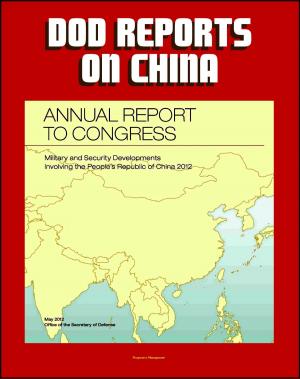The Innate Insurgent Advantage: Can Training and Planning Bridge the Gap? Iraqi Freedom and Enduring Freedom, Afghanistan, Terrorism, Casualties and Chaos, COIN Counterinsurgency, MRAP Vehicles, Kits
Nonfiction, History, Military| Author: | Progressive Management | ISBN: | 9781370748037 |
| Publisher: | Progressive Management | Publication: | September 1, 2016 |
| Imprint: | Smashwords Edition | Language: | English |
| Author: | Progressive Management |
| ISBN: | 9781370748037 |
| Publisher: | Progressive Management |
| Publication: | September 1, 2016 |
| Imprint: | Smashwords Edition |
| Language: | English |
This excellent report has been professionally converted for accurate flowing-text e-book format reproduction. This study examines the role of training, planning, and technological changes in helping turn around coalition and American efforts in Operation Iraqi Freedom (OIF) and Operation Enduring Freedom (OEF). The United States rushed headlong into protracted stabilization, security, transition, and rebuilding (SSTR) operations in Afghanistan and Iraq. Despite the wealth of historical, doctrinal, and experiential knowledge available to help mitigate casualties and restore security in such operations, the United States and its coalition partners failed to adequately plan, train, or equip their individual forces until years after the start of the conflict. The objective of this research was to determine if training, planning, doctrine, and concomitant technological advances helped turn the tide in OIF and later OEF as the United States and its forces institutionalized new doctrines and embraced the lessons of history. The United States and its coalition partners made great strides in reversing what had been virtual lost causes and reshaping planning, training, strategy, and tactics to affect meaningful successes and gradual withdrawal throughout the region. This brief study examines the methods, training, and decisions that helped make moderate successes possible after particularly dark days from 2004 through 2006. The evidence suggests that dedicated planning and training were indeed decisive in bridging the advantages enjoyed by insurgents fighting in their homeland with ample outside and local support—even if a little late to the need in the concentrations required for moderate success. It is hoped this paper will contribute to a permanent knowledge storehouse on effective end-state operations after so high a price was paid for the knowledge by this generation of warriors.
This excellent report has been professionally converted for accurate flowing-text e-book format reproduction. This study examines the role of training, planning, and technological changes in helping turn around coalition and American efforts in Operation Iraqi Freedom (OIF) and Operation Enduring Freedom (OEF). The United States rushed headlong into protracted stabilization, security, transition, and rebuilding (SSTR) operations in Afghanistan and Iraq. Despite the wealth of historical, doctrinal, and experiential knowledge available to help mitigate casualties and restore security in such operations, the United States and its coalition partners failed to adequately plan, train, or equip their individual forces until years after the start of the conflict. The objective of this research was to determine if training, planning, doctrine, and concomitant technological advances helped turn the tide in OIF and later OEF as the United States and its forces institutionalized new doctrines and embraced the lessons of history. The United States and its coalition partners made great strides in reversing what had been virtual lost causes and reshaping planning, training, strategy, and tactics to affect meaningful successes and gradual withdrawal throughout the region. This brief study examines the methods, training, and decisions that helped make moderate successes possible after particularly dark days from 2004 through 2006. The evidence suggests that dedicated planning and training were indeed decisive in bridging the advantages enjoyed by insurgents fighting in their homeland with ample outside and local support—even if a little late to the need in the concentrations required for moderate success. It is hoped this paper will contribute to a permanent knowledge storehouse on effective end-state operations after so high a price was paid for the knowledge by this generation of warriors.















